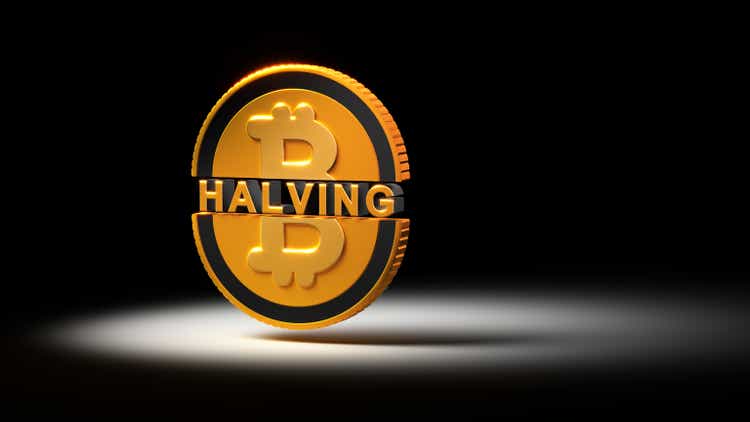Eurozone cheap money era comes to an end

This article is an on-site version of our Europe Express newsletter. Sign up here to get the newsletter sent straight to your inbox every weekday and Saturday morning
Good morning and welcome to Europe Express.
The European Central Bank’s governing council’s meeting in Amsterdam is expected to take the first steps towards ending its negative interest rate policy and stop its bond purchasing programme. We’ll dive into four things to look out for when Christine Lagarde speaks to the press this afternoon.
Meanwhile, the bloc’s climate agenda suffered a setback yesterday when the European parliament voted to weaken some of the draft laws coming up for talks with EU governments and the European Commission (though it maintained a full ban on CO₂-emitting cars as of 2035). We’ll hear from internal market commissioner Thierry Breton, who expressed disappointment at the development.
End of an era
Christine Lagarde will call time on the eurozone’s era of ultra-cheap money later today when the European Central Bank president is expected to outline plans to stop buying more bonds and to start raising interest rates next month, writes Martin Arnold in Amsterdam.
Most of the ECB’s 25 governing council members agree on the need to raise borrowing costs after inflation hit a eurozone record of 8.1 per cent in May — double the previous all-time high and quadruple the central bank’s target.
However, deep divisions remain over how fast and how far it should raise rates to bring inflation back under control. As ECB rate-setters meet in Amsterdam this week to discuss its next move, here are four things to watch for:
-
Interest rates:
With the ECB already lagging behind the US Federal Reserve and Bank of England, the key question for investors is whether it will raise rates by a quarter percentage point or a half when it meets again on July 21. Lagarde is expected to leave the door open to a bigger rise, while continuing to signal a preference for starting in a more “gradual” way with 25 basis points.
Whatever Lagarde says about the size of the ECB’s first rate rise since 2011 will be closely watched by investors, with any hint of a more aggressive move risking a bond market sell-off. “If the ECB comes out more hawkish than expected, this could spook market participants,” said Allianz economists.
-
Bond purchases:
Lagarde has already said the ECB will stop its remaining €20bn-a-month asset purchases early next month — fulfilling a key condition to start raising rates. Some ECB governing council members want it to stop buying more bonds immediately, but they are not sure this will happen.
Another key question is how long the ECB will continue reinvesting the proceeds of maturing bonds. The Fed has already stopped this — shrinking its balance sheet in the process — but the ECB has said it will continue “for as long as necessary to maintain favourable liquidity conditions and an ample degree of monetary accommodation”. Frederik Ducrozet, head of macroeconomic research at Pictet Wealth Management, said this “can hardly be justified any more”, raising the question of how much longer it will last.
-
New instrument:
The more important question for investors is what the ECB will say about its plans for dealing with the risk of a bond market panic once it starts raising rates. The difference — or spread — between what Germany and Italy each pay to borrow for 10 years has already risen to its highest since bond markets fell at the start of the pandemic in 2020.
Lagarde has said “if necessary we can design and deploy new instruments to secure monetary policy transmission”, which is expected to mean buying the bonds of highly indebted southern European countries to tackle any sudden surge in borrowing costs that threatens to trigger a debt crisis. Several rate-setters support adding a similar commitment to the policy statement it publishes on Thursday without giving more detail on the mechanics.
-
Forecasts:
There is broad consensus among economists that the ECB will slash its growth forecasts and raise them for inflation over the next three years. Underlining how badly it has underestimated recent price pressures, Berenberg chief economist Holger Schmieding predicted the ECB would raise its 2022 inflation forecast by almost 2 percentage points for the second consecutive quarter, taking it up to 7 per cent.
Investors will also be monitoring whether Lagarde puts more emphasis on the upside risks to inflation or the downside risks to growth. The former will be a hawkish signal that rates may need to rise higher than investors expect, while the latter will send a more dovish message.
Chart du jour: Left-field challenge
Emmanuel Macron’s former far-left challenger in the presidential elections, Jean-Luc Mélenchon, has taken advantage of public disillusionment with traditional politics to forge a leftwing alliance that could win a large share of seats in this month’s National Assembly elections and upset Macron’s legislative agenda.
Weakened hand
Industry commissioner Thierry Breton was among the first to respond to the disappointment as the European parliament weakened its own position ahead of forthcoming negotiations on legislation that aims to bring down the bloc’s carbon emissions by 55 per cent by 2030, writes Andy Bounds in Brussels.
The main piece of legislation the parliament seeks to water down is on extending a current system that makes heavy industrial polluters pay for their carbon emissions. The European Commission had proposed extending that system to cover commercial and private real estate, in a bid to accelerate efforts to increase energy efficiency in buildings.
But given the current pressures from rising inflation and record high energy prices, the parliament yesterday voted to exclude housing from the emission trading system (ETS).
MEPs also failed to reach agreement on the introduction of a carbon border tax — designed to charge importers to the EU for their emissions — and the establishment of a social climate fund intended to minimise the effects of carbon pricing on poorer households.
The French commissioner told reporters he also had “some reservations” on the extension of the ETS to housing (remember the gilets jaunes movement sparked by a climate-related fuel tax?). But in the end, Breton said, he supported the commission’s proposal because “the green deal is extremely important”.
While the parliament approved a total ban on internal combustion engines from 2035 onwards, Breton hinted at potential compromises down the road, given that 600,000 jobs in the sector were at stake. Also, Breton pointed to the fact that other parts of the world would continue to buy combustion engines.
“Europe should continue to produce some key components for thermal engines you will sell outside of Europe. It is extremely important to help the ecosystem to transition in a smooth way,” he said.
Breton also repeated his call on Europe to secure the vital minerals to manufacture batteries, solar panels and wind turbines, including by mining them at home. He will produce a proposal after the summer break. “It is more critical than ever.” In some cases, such as magnesium, the EU is almost entirely reliant on China. “We need 15 times as much lithium by 2030,” he said.
What to watch today
-
ECB governing council meets in Amsterdam
-
Justice ministers and, separately, internal market ministers meet in Luxembourg
Notable, Quotable
-
Merkel backlash: Former German chancellor Angela Merkel has spoken publicly about the war in Ukraine for the first time since she left office, defending her Russia stance in statements that prompted a fierce reaction from Ukrainian officials.
-
Regrets, but not sorry: During his first trip to Kinshasa, Belgium’s King Philippe has expressed “deepest regrets for the wounds of the past” but refrained from a formal apology for his country’s decades of brutal colonial rule in what is now the Democratic Republic of Congo.
Are you enjoying Europe Express? Sign up here to have it delivered straight to your inbox every workday at 7am CET and on Saturdays at noon CET. Do tell us what you think, we love to hear from you: [email protected]. Keep up with the latest European stories @FT Europe
Checkout latest world news below links :
World News || Latest News || U.S. News
Source link



